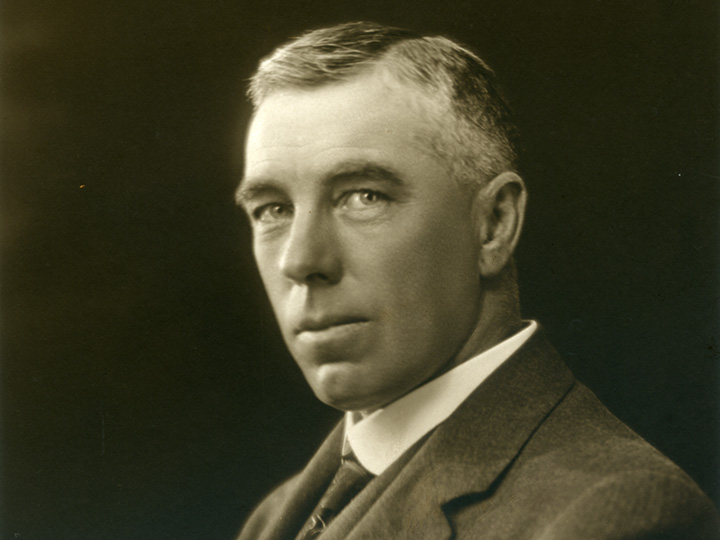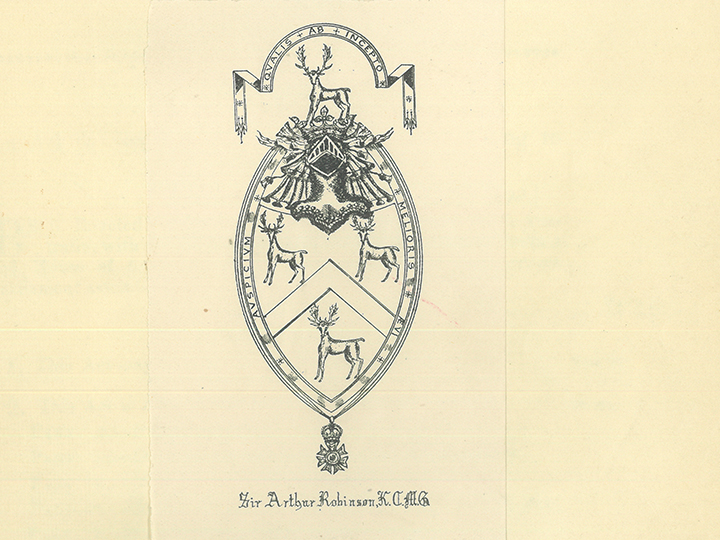Arthur Robinson establishes a legal practice in Melbourne
Sir Arthur Robinson was a direct descendant of Sir Thomas More, the patron saint of attorneys, statesmen and politicians.
Sir Thomas was an English lawyer who served as Lord Chancellor of England from 1529 to 1533, before he was beheaded for refusing to swear the Oath of Supremacy acknowledging Henry VIII as supreme head of the Church of England.
That Sir Arthur would go on to a career in law and politics was not surprising. He was born in Melbourne in 1872, into a family where political discussions were commonplace and ambition was encouraged. His father was commercial editor of The Age, and frequent visitors to the family home included Sir Arthur's uncle, Sir Edmund Barton, Australia's first prime minister, and Alfred Deakin, Barton's successor.

From a young age, Sir Arthur exhibited an aptitude for writing and oratory, often conscripting his younger brother William as his audience when rehearsing debates.
He studied law at the University of Melbourne and then completed his articles. He was admitted as a barrister and solicitor in 1896, and started his own legal firm in 1907.
Sir Arthur entered politics in 1900 at the age of 28, when he was elected to represent the seat of Dundas in the Victorian Legislative Assembly. He subsequently served Victoria as an honorary minister (1915 to 1917), Solicitor-General (1918 to 1924), Commissioner for Public Works (1918 to 1919) and Attorney-General (1919 to 1924).
Sir Arthur was legal adviser to mining and industrial enterprises, and a director of numerous companies including the Ford Motor Company of Australia, the Zinc Corporation (which later became Rio Tinto), International Harvester Company of Australia, Bank of Adelaide, British Australian Lead Manufacturers, Australian Deposit & Mortgage Bank, AMP Society, Central Insurance, Melbourne Electric Supply Company and the Colonial Gas Association. In 1926 he led a successful campaign against a referendum seeking to give the Federal Government wide-ranging control over industrial relations. A successful referendum would have been disadvantageous to many of Sir Arthur's commercial clients.
Sir Arthur was known for his benevolence, but didn't suffer fools. He believed people should 'stand up, speak up and shut up'. According to his wife, Lady Robinson, his greatest passion was creating opportunities for young people. 'Give to youth', he would say, 'to make your country what it is meant to be'. He gave generously of his time, skills and money.

In 1921 Sir Arthur was awarded the honour of Companionship of the Order of St Michael and St George for his work in commercial and legal life and in the community. In 1923 he was appointed a Knight Commander of the Order of St Michael and St George.
